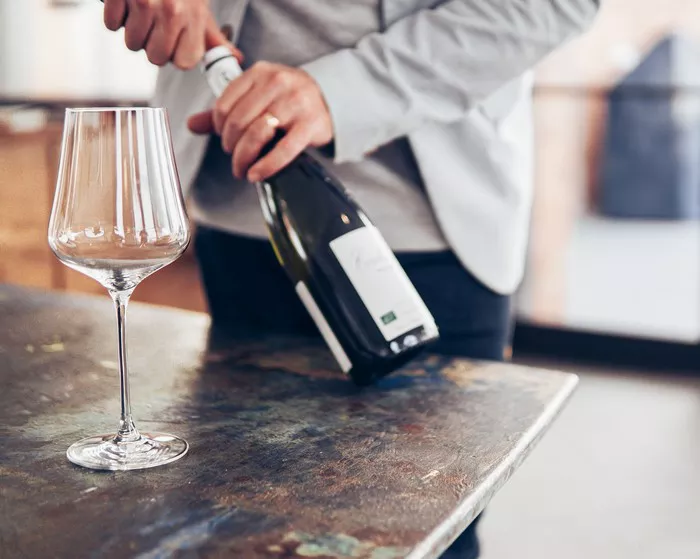When it comes to selecting a wine, one of the key considerations for many enthusiasts is the level of dryness. Chardonnay and Sauvignon Blanc are two popular white wine varietals known for their distinct characteristics, but which one is drier? In this article, we will delve into the nuances of Chardonnay and Sauvignon Blanc to determine which of these wines leans towards the drier end of the spectrum.
Understanding Dryness in Wine
Before we compare the dryness of Chardonnay and Sauvignon Blanc, it’s essential to understand what dryness means in the context of wine. Dryness refers to the level of residual sugar left in the wine after fermentation. Wines are categorized as dry when they contain minimal residual sugar, resulting in a crisp, clean taste without perceptible sweetness.
Chardonnay: A Versatile White Wine
Chardonnay is a versatile white wine grape that is grown in various wine regions around the world. It is known for its ability to reflect its terroir and winemaking techniques, resulting in a wide range of styles, from lean and crisp to rich and buttery. When considering which is drier, Chardonnay or Sauvignon Blanc, it’s important to examine the different styles of Chardonnay.
Unoaked Chardonnay tends to be lighter in body and crisper in acidity, making it a popular choice for those seeking a drier white wine. These wines often undergo minimal or no oak aging, allowing the pure expression of the fruit and terroir to shine through. In contrast, oaked Chardonnay, particularly those aged in new oak barrels, can exhibit richer textures and flavors, with notes of vanilla, caramel, and toast.
To determine which is drier, Chardonnay or Sauvignon Blanc, it’s crucial to consider the residual sugar levels in both styles of Chardonnay. Unoaked Chardonnays typically have lower residual sugar levels compared to oaked counterparts, making them drier overall.
See Also: What Temperature Should Port Wine Be Served At?
Sauvignon Blanc: Crisp and Refreshing
Sauvignon Blanc is another popular white wine grape known for its bright acidity and vibrant fruit flavors. Originating from the Bordeaux region of France, Sauvignon Blanc is now grown in numerous wine regions worldwide, including New Zealand, California, and Chile. This varietal is celebrated for its crispness and refreshing character, making it a favorite choice for warm-weather sipping.
When comparing Sauvignon Blanc to Chardonnay in terms of dryness, Sauvignon Blanc often leans towards the drier end of the spectrum. The grape’s naturally high acidity and minimal residual sugar levels contribute to its crisp, clean taste. Sauvignon Blanc is typically fermented in stainless steel tanks to preserve its freshness and fruit-forward aromatics, further enhancing its dry profile.
Comparing Dryness: Chardonnay vs. Sauvignon Blanc
Now that we’ve examined the characteristics of Chardonnay and Sauvignon Blanc, let’s compare their dryness directly. While both wines can be made in a range of styles, including dry and off-dry, Sauvignon Blanc generally tends to be drier than Chardonnay across the board.
In blind tastings and sensory evaluations, Sauvignon Blanc often exhibits more pronounced acidity and a crisper mouthfeel compared to Chardonnay. These qualities contribute to the perception of dryness in Sauvignon Blanc, making it an excellent choice for those who prefer their white wines on the drier side.
However, it’s essential to note that individual winemaking techniques and regional influences can impact the perceived dryness of both Chardonnay and Sauvignon Blanc. For example, Chardonnays from cooler climate regions may retain higher acidity levels and exhibit a crisper profile, resembling the dryness commonly associated with Sauvignon Blanc.
Food Pairing Considerations
When selecting between Chardonnay and Sauvignon Blanc, particularly in terms of dryness, it’s essential to consider food pairing options. Both wines pair well with a variety of dishes, but their flavor profiles can complement different types of cuisine.
Sauvignon Blanc’s high acidity and crispness make it an ideal pairing for seafood, salads, and light poultry dishes. Its zesty citrus notes and herbaceous aromas can enhance the flavors of grilled shrimp, oysters on the half shell, or a fresh summer salad.
On the other hand, Chardonnay’s versatility allows it to pair seamlessly with a broader range of foods. Unoaked Chardonnays are particularly well-suited for lighter fare such as grilled vegetables, roasted chicken, or pasta primavera. Meanwhile, oaked Chardonnays with their richer textures and flavors can stand up to heartier dishes like creamy pastas, roasted pork, or buttery seafood preparations.
When deciding which is drier, Chardonnay or Sauvignon Blanc, consider the specific flavors and textures of the dish you plan to serve. For lighter, more delicate dishes, Sauvignon Blanc’s crispness may be the perfect match. However, for richer, more substantial fare, a well-balanced Chardonnay could be the better option.
Conclusion
In conclusion, when comparing the dryness of Chardonnay and Sauvignon Blanc, both wines offer excellent options for those seeking a crisp, refreshing white wine. While Sauvignon Blanc tends to lean towards the drier end of the spectrum with its high acidity and minimal residual sugar levels, Chardonnay offers a broader range of styles that can cater to various preferences and occasions.
Ultimately, the choice between Chardonnay and Sauvignon Blanc comes down to personal taste preferences and the specific characteristics you’re seeking in a white wine. Whether you prefer the bright acidity of Sauvignon Blanc or the nuanced complexity of Chardonnay, both varietals have their rightful place on the table and in the wine glass. So, the next time you’re contemplating which is drier, Chardonnay or Sauvignon Blanc, consider exploring both and savoring the unique qualities each has to offer.


